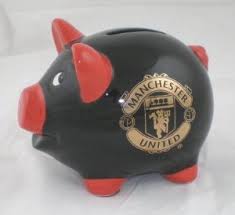By David Owen
September 17 – Manchester United have kicked off the 2014-15 Premier League reporting season with a small pre-tax loss, reflecting the absence of Champions League football during the relevant period. The Old Trafford club suffered a dip in revenue to below £400 million over the 12 months to June 30, while operating expenses edged up to £387.6 million.
A £23.6 million profit on the disposal of players such as striker Danny Welbeck, sold to rivals Arsenal around a year ago, helped to propel operating profits to £31.2 million, less than half the £67.9 million figure recorded for 2013-14. But more than £35 million of finance costs then pushed the Red Devils into the red at the pre-tax level. The loss amounted to just under £4 million versus a pre-tax profit of £40.5 million the year before.
It wasn’t all bad news: while broadcasting and match-day revenue dropped by 20.7% and 16.2% respectively, sponsorship revenues climbed 14.1% to a record £154.9 million, thanks in part to the club’s new seven-year shirt sponsorship with General Motors.
Staff costs dipped more than 5% to £203 million, as employee numbers were pruned by 101 to 778.
With United returning to European football body UEFA’s flagship club competition this season, even if the club began their group-stage campaign with defeat by PSV, future prospects are much better.
The new £750 million 10-year kit deal with Adidas was launched in August and the club is calling for revenue of between £500 million and £510 million in fiscal 2016 and adjusted ebitda of between £165 million and £175 million. According to Ed Woodward, executive vice chairman, this guidance for 2016 reflects “the underlying strength of our business and our confidence in its continued growth”.
Gross debt climbed nearly £70 million to £411 million, partly reflecting the strengthening US dollar. With cash and cash equivalents more than doubling to £155.8 million, net debt came down by some £20 million to £255.2 million.
There seems little reason why the negative year-on-year swing in United’s pre-tax result should be duplicated by leading Premier League rivals, given the club-specific nature of its underlying cause. After the eye-catching turnaround effected in 2013-14, a year which saw 14 of the 20 Premier League clubs report pre-tax profits, 2014-15 should once again see many of England’s elite in positive financial territory.
Contact the writer of this story at moc.l1745038908labto1745038908ofdlr1745038908owedi1745038908sni@n1745038908ewo.d1745038908ivad1745038908

